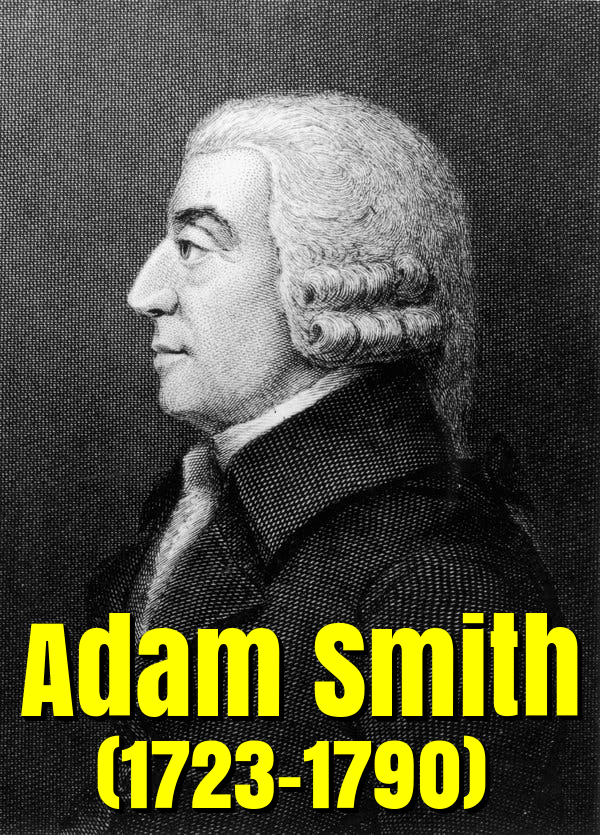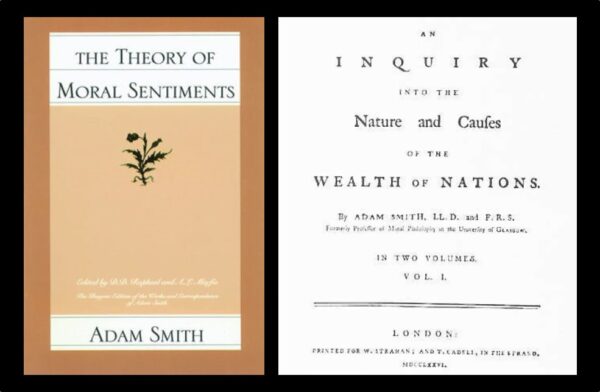Adam Smith is widely regarded as the father of capitalism.
1. Who is Adam Smith?
Below is an excerpt from Wikipedia – Adam Smith.
Adam Smith (baptized 16 June [O.S. 5 June] 1723[1] – 17 July 1790) was a Scottish[a] economist and philosopher who was a pioneer of political economy and key figure during the Scottish Enlightenment.[7] Also known as “The Father of Economics”[8] or “The Father of Capitalism”,[9] he wrote two classic works, The Theory of Moral Sentiments (1759) and An Inquiry into the Nature and Causes of the Wealth of Nations (1776). The latter, often abbreviated as The Wealth of Nations, is considered his magnum opus and the first modern work of economics. In his work, Smith introduced his theory of absolute advantage.[10]
For more on Adam Smith, watch the video at the end of this post.
2. Adam Smith’s two famous books
- Read Wikipedia – The Theory of Moral Sentiments. For more, listen to the audiobook The Theory of Moral Sentiments – audiobook.
- Read Wikipedia – The Wealth of Nations. For more, listen to the audiobook: The Wealth of Nations by Adam Smith – Full Audiobook.
3. Discussion
Adam Smith is widely regarded as the father of capitalism. Two highlights:
- His works on capitalism (e.g., “free market” and “free trade”) were very original and good, but primitive, especially in view of the 21st century.
- His works were hugely abused by both the British and Americans as a theoretical foundation to expand their respective Empires via colonialism and imperialism.
As America, the last big colonial power standing, collapses in the coming years (Colonial America 1776-2030?), Smith’s works will become increasingly irrelevant, if not totally wrong.
For more, read History 2.0 – China’s Comeback vs. America’s Decline.
4. Closing
Adam Smith has been overrated in the West, and his works will become increasingly irrelevant as communism prevails over colonialism in the coming years (Colonialism vs. Communism).
Now, please sit back and enjoy the video below.


